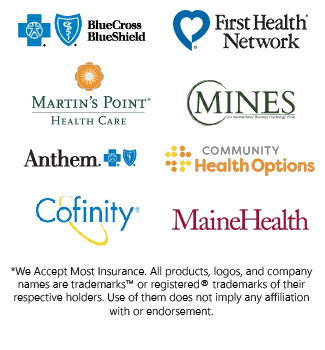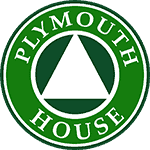Plymouth House
12-Step Contacts
The Plymouth House is a 12-step retreat focused on giving those with substance use disorders and their families an entirely new lease on life. Our staff consists of experienced 12-step practitioners with diverse educational backgrounds and life experiences, as well as licensed therapists, holistic specialists and experienced psychiatrists. While we are not affiliated with AA in any way, we believe in AA’s 12 steps and their power to transform lives. For more than 15 years we’ve been utilizing the 12 Steps to give addicts, alcoholics and their families hope and healing. The Plymouth House started strictly as an intense 12-step retreat where men and women who were struggling with substance dependency could go to get deeply immersed in working their steps with a sponsor. Instead of working with an outside sponsor, however, guests are paired with what we call a “Twelve Step Contact.” This person has years of sobriety, has gone through the steps themselves and has guided countless others through the steps. Many of our Twelve Step Contacts are alumni of The Plymouth House program themselves and are proud to pass on the legacy. Ideally guests work through Steps One through Eight while at The Plymouth House.
Below is a brief summary of each step. This list by no means gives the whole picture of each step, but rather its essence. It is critical to have a practiced sponsor guide each individual through each step. The Plymouth House’s 12-step contacts work with each individual throughout their stay to thoroughly understand each step.
More About Alcoholics Anonymous
Alcoholics Anonymous (AA) was first developed in 1935 by Bill Wilson, an alcoholic stockbroker, and Doctor Bob Smith, an alcoholic physician. Bill Wilson had had a spiritual experience while on his deathbed from alcoholism. His experience led him to believe that the key to his recovery was to help others find sobriety. Doctor Bob was the first person Bill W. helped. Together, Bill W. and Doctor Bob built a program of action consisting of 12 steps. The two men expanded AA in 1939, the same year that the Big Book of Alcoholics Anonymous was published. Known simply as the Big Book, this piece of literature outlines the 12 steps in depth and details each of the individual steps. Today, AA has spread to nearly every country across the world, and has helped millions of men and women successfully overcome alcoholism and addiction and go on to leave healthy, meaningful lives. AA recognizes alcoholism as a disease — a mental, emotional, physical and spiritual disease. The 12 steps are a path to heal from this disease.
We Are Here For You
Let Us Help You Heal
Our Drug & Alcohol recovery services are second to none.
Learn how we can help by speaking with one of our Treatment Advisors today.
The 12 Steps
Step One
“We admitted we were powerless over alcohol—that our lives had become unmanageable.”
This first step of every journey of recovery is an understanding that something isn’t working and that something needs to change. Because addiction is a disease of denial, it can be difficult for the person who is struggling to admit to themselves (let alone to others) that drinking or drug use has become a very real issue. Despite the accumulation of wreckage and extensive personal consequences, it can be difficult to come to terms with the fact that outside help has become a necessity. The first step simply requires the person to accept that there is a problem, and that they cannot tackle this problem without help.
Step Two
“Came to believe that a Power greater than ourselves could restore us to sanity.”
This step really comes down to hope — believing that there is hope for a better life. That hope has to come from a power greater than oneself. If the individual could have solved their problem on their own, they would have. A power greater than themselves is required for that individual to get sober. During this step of the program, spirituality comes into play for the first time. The participant is asked to begin exploring what a higher power might look like, and eventually land on an individualized concept. It is important to understand that this concept does not have to be definitive, and it can change as many times as necessary. Just so long as the participant understands that the power does NOT lie within — not when it comes to successfully overcoming addiction.
Step Three
“Made a decision to turn our will and our lives over to the care of God as we understood Him.”
This step refers to trusting in the higher power discovered in Step Two and deciding to continue with the 12 steps. During this stage of the 12s-step program, the person simply agrees to start trusting that things will improve so long as the steps are followed closely and so long as stubborn willfulness is abandoned.
Step Four
“Made a searching and fearless moral inventory of ourselves.”
This step is all about self-reflection. It requires the individual to take a thorough and honest inventory of their pasts. The person compiles a thorough list that includes resentments (people, institutions and principles), fears, harms done to others and sexual conduct. By writing this inventory, individuals often uncover patterns in their behavior and attitudes toward life that have caused them trouble.
Our Drug & Alcohol Treatment Services Include
Step Five
“Admitted to God, to ourselves, and to another human being the exact nature of our wrongs.”
During this step, the person sits down with another person of their choosing and goes over their Step Four inventory. He or she discusses resentments, fears, sexual conduct, people who have been harmed by his or her actions in the past, and what character defects have cropped up over the years.
The person listening often helps to identify patterns that have been overlooked. The process of getting vulnerable with another human being often produces a sense of connection and relief.
Step Six
“Were entirely ready to have God remove all these defects of character.”
This step revolves around acceptance. The person accepts that there are areas of his or her life that need to be changed, and he or she becomes willing to let go of all existing character defects. Putting down the drink or the drug is a great initial step, but in order for recovery to be maintained the person must continuously strive towards self-betterment.
Step Seven
“Humbly asked Him to remove our shortcomings.”
During this step, the person and his or her Twelve Step Contact recite the associated prayer, which goes, ““My Creator, I am now willing that you should have all of me, good and bad. I pray that you now remove from me every single defect of character which stands in the way of my usefulness to you and my fellows. Grant me strength, as I go out from here, to do your bidding.” This step revolves around humility and becoming willing to make a serious attitude adjustment – simply asking a higher power to remove shortcomings isn’t enough, the person must continuously work towards the desired change.
Step Eight
“Made a list of all persons we had harmed, and became willing to make amends to them all.”
This step introduces the process of making amends, and centers around mending relationships with friends and family members and understanding the impact that active addiction has had in the lives of others. Just like Step Four, this step of the program requires a person to write down a completely comprehensive list, and to look at past experiences and interactions honestly and fearlessly.
Ready To Begin Your Drug & Alcohol Treatment?
We Offer A Safe & Effective Program
Don’t let Drug & Alcohol addiction control your life.
Call us today and let’s get you started on the path to a better you.
Steps Nine, Ten, Eleven & Twelve
While guests focus on Steps One through Eight while in treatment, they do get an education on what the remaining steps are.
Step Nine
“Made direct amends to such people wherever possible, except when to do so would injure them or others.”
Step Ten
“Continued to take personal inventory and when we were wrong promptly admitted it.”
Step Eleven
“Sought through prayer and meditation to improve our conscious contact with God, as we understood Him, praying only for knowledge of His will for us and the power to carry that out.”
Step Twelve
“Having had a spiritual awakening as the result of these Steps, we tried to carry this message to alcoholics, and to practice these principles in all our affairs.”
Begin Healing Now!
Have A Call With One Of Our Treatment Advisors
Don’t Suffer Any Longer
Begin On Your Personal Journey of Recovery
Our experienced team of Treatment Advisors will personally work with you from your initial contact with us until you arrive at The Plymouth House. We know that in most cases, guests and their loved ones have a range of questions regarding treatment options, coverage options, the facility itself and the details of the admissions process. With one phone call we will assist families and individuals in making the right choices for their situation. We look forward to speaking with you soon!
















